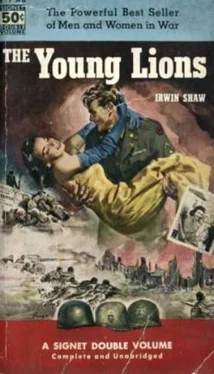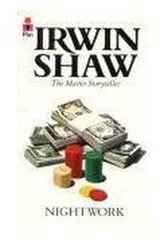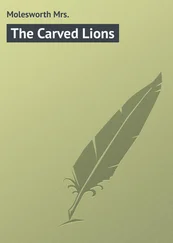Irwin Shaw - The Young Lions
Здесь есть возможность читать онлайн «Irwin Shaw - The Young Lions» весь текст электронной книги совершенно бесплатно (целиком полную версию без сокращений). В некоторых случаях можно слушать аудио, скачать через торрент в формате fb2 и присутствует краткое содержание. Жанр: Классическая проза, на английском языке. Описание произведения, (предисловие) а так же отзывы посетителей доступны на портале библиотеки ЛибКат.
- Название:The Young Lions
- Автор:
- Жанр:
- Год:неизвестен
- ISBN:нет данных
- Рейтинг книги:4 / 5. Голосов: 1
-
Избранное:Добавить в избранное
- Отзывы:
-
Ваша оценка:
- 80
- 1
- 2
- 3
- 4
- 5
The Young Lions: краткое содержание, описание и аннотация
Предлагаем к чтению аннотацию, описание, краткое содержание или предисловие (зависит от того, что написал сам автор книги «The Young Lions»). Если вы не нашли необходимую информацию о книге — напишите в комментариях, мы постараемся отыскать её.
The Young Lions — читать онлайн бесплатно полную книгу (весь текст) целиком
Ниже представлен текст книги, разбитый по страницам. Система сохранения места последней прочитанной страницы, позволяет с удобством читать онлайн бесплатно книгу «The Young Lions», без необходимости каждый раз заново искать на чём Вы остановились. Поставьте закладку, и сможете в любой момент перейти на страницу, на которой закончили чтение.
Интервал:
Закладка:
"Are there mines?" Pavone asked.
"Sure there're mines," the Canadian said aggressively. "Why shouldn't there be mines? Where do you think you are, Yankee Stadium?"
He had an accent that would have sounded natural in Brooklyn. "Where you from, soldier?" Pavone asked.
"Toronto," said the soldier. "The next man tries to get me out of Toronto is going to get a Ford axle across his ears."
There was the whistle again, and again Michael was too slow to get out of the jeep. The Canadian disappeared magically. Pavone merely leaned negligently against the jeep. This time the shell exploded, but it must have been a hundred yards away, because nothing came their way at all. Two guns on the other side of the convent wall fired rapidly again and again, answering.
The Canadian raised himself out of the ditch again. "Rest area," he said venomously. "I should have joined the bloody American Army. You don't see any Englishmen around here, do you?" He glared at the broken street and the smashed buildings with hatred flaring from his clouded eyes. "Only Canadians. When it's tough, hand it to Canada."
"Now…" Pavone began, grinning at this wild inaccuracy.
"Don't argue with me, Colonel, don't argue with me," the man from Toronto said loudly. "I'm too nervous to argue."
"All right," Pavone said, smiling, pushing his helmet back, so that it looked like an unmilitary chamber-pot over his bushy, burlesque eyebrows. "I won't argue with you. I'll see you later."
"If you don't get shot," said the Canadian, "and if I don't desert in the meantime."
Pavone waved to him. "Mike," he said, "I'll drive now. You sit at the back, and keep your eyes open."
Michael climbed in and sat high up on the folded-down jeep top, so that he could fire more easily in all directions. Pavone took the wheel. Pavone always took the most responsible and dangerous position at moments like this.
Pavone waved once more to the Canadian, who didn't wave back. The jeep growled down the road into the town.
Michael blew at the dust in the carbine chamber and took it off safety. He sat with the carbine over his knees and peered ahead of him as Pavone slowly drove down the battered street among the ruins.
The batteries crashed all around him. It was hard to imagine the organization, the men telephoning, jotting down numbers on maps, correcting ranges, fiddling with the delicate enormous mechanisms that raised a gun so that it would fire five miles this minute and seven the next, all going on unseen among the cellars of the old town of Caen, and behind ancient garden walls and in the living-rooms of Frenchmen who had been plumbers and meat-packers before this and were now dead. How large was Caen, how many people had lived in it, was it like Buffalo, Jersey City, Pasadena?
The jeep went slowly on, with Pavone looking interestedly around him, and Michael feeling increasingly naked at the back.
They turned a corner and came to a street of three-storey houses which had been badly mauled. Cascades of rubble swept down from the back walls of the houses to the street and there were men and women patiently bent over high in the ruins, like fruit-pickers, taking a rag here, a lamp there, a pair of stockings, a cooking-pot, out of the thick pile of rubbish which had been their homes, oblivious of English guns around them, oblivious of snipers, oblivious of the German guns across the river that were shelling the town, oblivious of everything except that these were their homes and in these torrents of stone and lumber were their possessions, slowly accumulated in the course of their lives.
In the street were wheelbarrows and baby carriages. The gleaners gathered up armloads high in the pile and slid down, balancing their dusty treasures, and put them neatly in the small conveyances. Then, without looking at the Americans who were passing them, or at the occasional Canadian jeep or ambulance that ground by, they would climb methodically up the static torrent and begin digging all over again for some remembered and broken treasure.
They came into a wide square, deserted now, and open at one end because all the buildings had been levelled completely there. The Orne River was on the other side. Beyond that, Michael knew, the Germans had their lines, and he knew that somewhere across the river there were enemy eyes peering at the slow-moving jeep. He knew that Pavone understood that too, but Pavone did not increase his speed. What the hell is the bastard proving, Michael thought, and why doesn't he go prove it by himself?
But no one fired at them, and they went on.
Pavone wound slowly about the city in and out of the strong summer sunlight and the purple French shadows that Michael had known from the paintings of Cezanne and Renoir and Pissarro long before he had ever set foot on the soil of France. Pavone stopped the jeep to look at a street sign that, untouched and municipally proud, named two streets that no longer existed. Pavone moved in a slow, interested way, and Michael divided his time between staring at the thick, healthy, brown neck under the helmet and at the gaping grey sides of the stone buildings from which at any moment his death might arrive.
Pavone started the jeep again and drove thoughtfully down what had once been a main thoroughfare. "I came here for a week-end in 1938," Pavone said, looking back, "with a friend of mine who produced movies, and two girls from one of his companies." He shook his head reflectively. "We had a very nice week-end. My friend, his name was Jules, was killed right away in 1940." Pavone peered at the jagged shop-fronts. "I can't recognize a single street."
Fantastic, Michael thought, he is risking my life for the memory of a week-end with a couple of players and a dead producer six years ago.
They turned into a street in which there was considerable activity. There were trucks drawn up alongside a church and three or four young Frenchmen with FFI armbands patrolling along an iron fence and some Canadians helping wounded civilians into one of the trucks. Pavone stopped the jeep in a little square in front of the church. The pavement was piled high with old valises, wicker hampers, carpet-bags, net market sacks stuffed with linen, sheets and blankets in which were rolled an assortment of household belongings.
A young girl in a light blue dress, very clean and starched, went by on a bicycle. She was pretty, with lively blue-black hair. Michael looked at her curiously. She stared at him coldly, hatred and contempt very plain in her face. She is blaming me, Michael thought, for the bombings, for the fact that her house is down, her father dead, perhaps, her lover God knows where. The girl flashed on, her pretty skirt billowing, past the ambulance and the shell-marked stone. Michael would have liked to follow her, talk to her, convince her… Convince her of what? That he was not just an iron-hearted, leering soldier, admiring pretty legs even in the death of a city, that he understood her tragedy, that she must not judge him so swiftly, in the flashing of an eye, must have mercy in her heart for him, and understanding, just as she must expect mercy and understanding in return…
The girl disappeared.
"Let's go in," said Pavone.
The inside of the church was very dark after the brilliant sunlight outside. Michael smelled it first. Mixed with the slight, rich odour of old candles and incense burned in centuries of devotion, there was a smell of barnyard and the sick smell of age and medicine and dying.
He blinked, standing at the door, and listened to the scuffle of children's feet on the great stone floor, now strewn with straw. High overhead there was a large, gaping shell-hole. The sunlight streamed down through it, like a powerful amber searchlight, piercing the religious gloom.
Then, as his eyes grew accustomed to the darkness, he saw that the church was crowded. The inhabitants of the city, or those who had not yet fled and not yet died, had assembled here, numbly looking for protection under God, waiting to be taken away behind the lines. The first impression was that he was in a gigantic religious home for the aged. Stretched out on the floor on litters and on blankets and on straw heaps were what seemed like dozens of wrinkled, almost evaporated, yellow-faced, fragile octogenarians. They rubbed their translucent hands numbly over their throats; they pushed feebly at blanket ends; they mumbled with animal squeaky sounds; they stared, hot-eyed and dying, at the men who stood over them; they wet the floor because they were too old to move and too far gone to care; they scratched at grimy bandages that covered wounds they had received in the young men's war that had raged in their city for a month; they were dying of cancer, tuberculosis, hardening of the arteries, nephritis, gangrene, malnourishment, senility; and the common smell of their disease and their helplessness and their age, collected together like this in the once-shelled church, made Michael gasp a little as he regarded them, lit here and there in a mellow and holy beam of sunlight, dancing with dust-motes and shimmering over the wasted, fiercely hating faces. Among them, between the straw palliasses and the stained litters, between the cancer cases and the old men with broken hips who had been bedridden for five years before the British came, between the old women whose great-grandchildren had already been killed at Sedan and Lake Chad and Oran, among them ran the children, playing, weaving in and out, swiftly and gaily shining for a moment in the golden beam from the German shell-hole, then darting like glittering water-flies into the rich pools of purple shadow, the high tinkle of their laughter skimming over the heads of the grave-bound ancients on the stone floor.
Читать дальшеИнтервал:
Закладка:
Похожие книги на «The Young Lions»
Представляем Вашему вниманию похожие книги на «The Young Lions» списком для выбора. Мы отобрали схожую по названию и смыслу литературу в надежде предоставить читателям больше вариантов отыскать новые, интересные, ещё непрочитанные произведения.
Обсуждение, отзывы о книге «The Young Lions» и просто собственные мнения читателей. Оставьте ваши комментарии, напишите, что Вы думаете о произведении, его смысле или главных героях. Укажите что конкретно понравилось, а что нет, и почему Вы так считаете.











